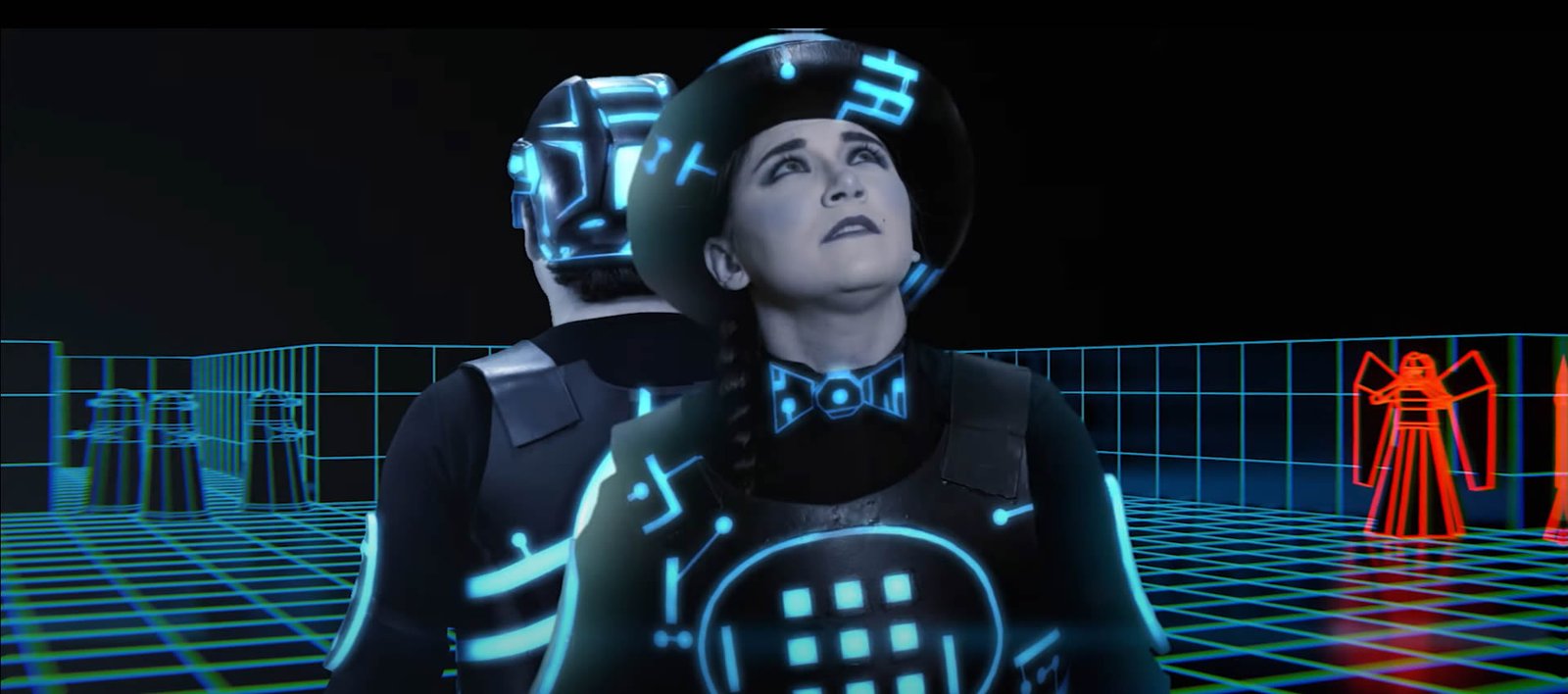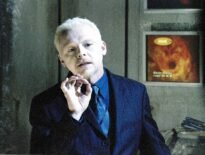September is a time for taking stock and saying farewell to summer, but for many people summer was a bit of a non-event. We could have been at a barbecue – instead we were faced with crowded beaches, cancelled festivals, boarded-up campsites, and the general sense of despair that settles in when everything is shut. Chris Phillips, it seems, knows this better than anyone, and as we chat on this balmy evening (morning, if like him you’re in Idaho) I can detect a sense of lockdown fatigue. “I feel like Arnie at the end of the second Terminator film,” he says. “You know, where he’s had his arm crushed and his eye out and he’s staggering across the factory floor dragging his feet, muttering ‘I need a vacation’.”
He’s undoubtedly earned it. Chris has spent the last couple of months assembling a new episode of Velocity, the fan film series that launched three years ago, starring local comedian (and Chris’s partner) Krystal Moore as a nattily dressed, American acccented female Doctor. Since the Doctor regenerated in her minimalist (not to mention art gallery sized) console room, she’s locked horns with Davros, defeated a Dalek empire, met a new Master, come face to face with Weeping Angels at Stonehenge, and even met Sophie Aldred. Almost. How do you follow that?
By redoing Tron, it seems. Velocity has once more gone old school, and for this next venture we’re back in the 1980s, at a software company about to launch its latest product on an unsuspecting public, little suspecting that the code hides a couple of rather nasty surprises. It’s once more up to the Doctor to save the day, but in order to do that she’s going to have to be digitised. It’s a neat little summation of how the film was produced – remotely, in the middle of a pandemic, one actor at a time, with appropriate social distancing observed throughout the entire shoot.
“I thought the aesthetic would translate well to a low budget,” Chris – whose four-year-old loves the film – explains. “I’d already planned on doing a Tron episode, which by the very nature of it was already going to have a lot of green screen anyway. So in the end we decided to green screen the whole lot. We shot it in a room at my office – we have a green screen room here. I’m masked up. The camera was on a tripod, the boom mic’s on a tripod – I’m the other side of the room 20 feet away from them, and they ran through their lines one at a time. You need another actor to bounce off, so we had Krystal on the webcam on an iPad, doing the other lines.”
And after that, he says, he spent most of his evenings editing. “Digital effects are fun when you design the first one and think ‘Oh, that was really cool’. Then you realise you’ve got to copy that to the other 30 shots in the scene, and it becomes a pretty laborious task, quite quickly.”
Laborious, but safe. “The population density’s about 20 people per square mile here,” he says. “In Essex, where I’m from, it’s 2,000 per square mile. So some of the health concerns you’d have in the UK are less prevalent here, at least in this state.” Yes, how are things over there? It turns out ‘over there’ is the wrong way to phrase it, and that it’s a fallacy to assume that America’s response to the pandemic is all-encompassing. “Things aren’t centralised,” Chris clarifies, “and it is a state-by-state government. To the rest of the world, the U.S. seems like one thing, and it isn’t like that at all. What’s happening in Washington D.C. feels very far off.”
I’m wondering, though, just how Covid has left its mark. “One of the things we agreed about getting our family through it was that it’s okay to let circumstances upset you or make you feel bad. Whether it’s the pandemic or the racial justice protests and all the conversation about that, or these wildfires, it’s okay to feel sad about that. But it’s not okay to use any of that as a way to tell yourself not to bother or to not do the things that you want to do.”
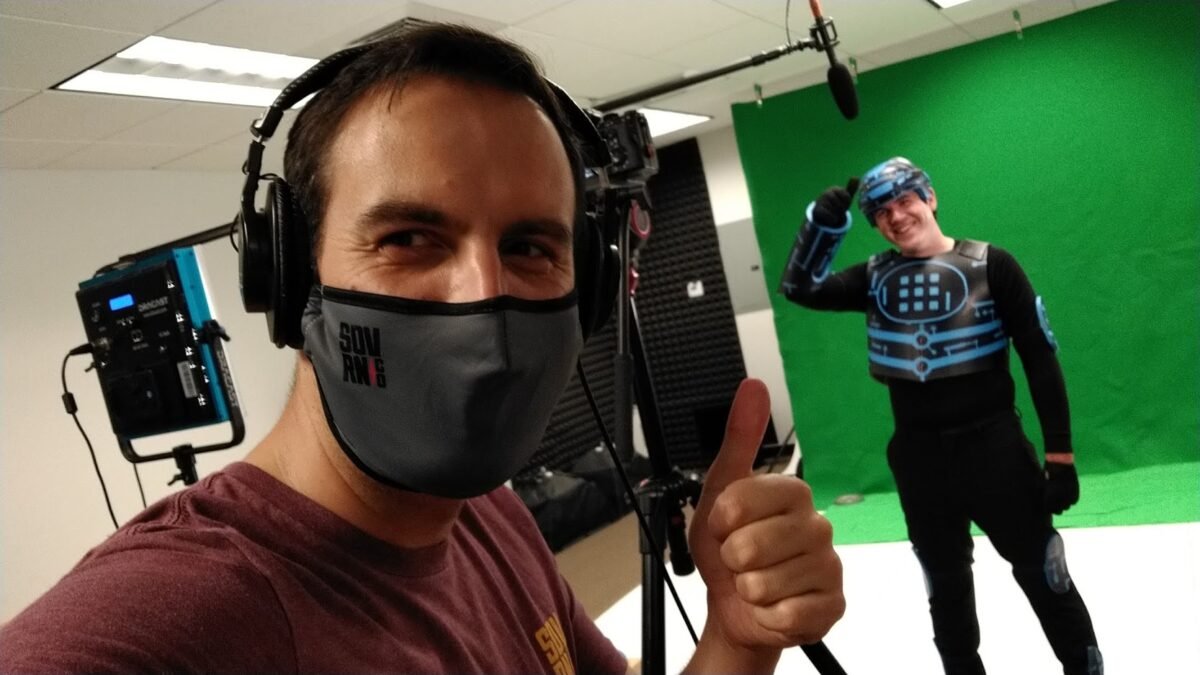
At a half-dozen video episodes (plus various special stories), Velocity is fast gaining its own sense of continuity. This, as we end up discussing, is poisoned chalice territory, although for the moment Chris isn’t worried – if anything, he’s revelling in it. The story of Episode Six weaves in a number of previously established characters – regulars to the series will spot Paycen Styhl, who plays tech guru Kevin Apiary, briefly donning a VR helmet, during a scene he shot on his phone while infected with Covid (he’s since made a full recovery). “The plot of Tron worked well with the characters we’d already set up – the cyborg woman, the ’80s yuppie businessman. So it felt like a nice way of tying it in.”
The fear that he’ll lapse into navel-gazing is seemingly never far from his radar, which is why every Velocity instalment has to pass what Chris refers to as ‘the Brian Test’, named for his manager, Brian. “He’s in his mid-40s – he’s into fishing, he’s into baseball. He doesn’t watch any sci-fi. Can he sit and watch this for 10 minutes, understand it, and come away thinking ‘Yeah, that wasn’t too bad’? If I can do that, then I know I’ve ridden the line of weird niche Doctor Who geek culture, and something that was watchable for a general audience.”
Is that what Chibnall’s been doing? Chris thinks about it for a moment before responding. “I think he went really open on the first season, and then he got so much hate from the long term fans that in the second season he went really into the nerdy stuff. I think he’s struggling with the same issue – obviously there’s slightly more resting on his shoulders than on mine.”
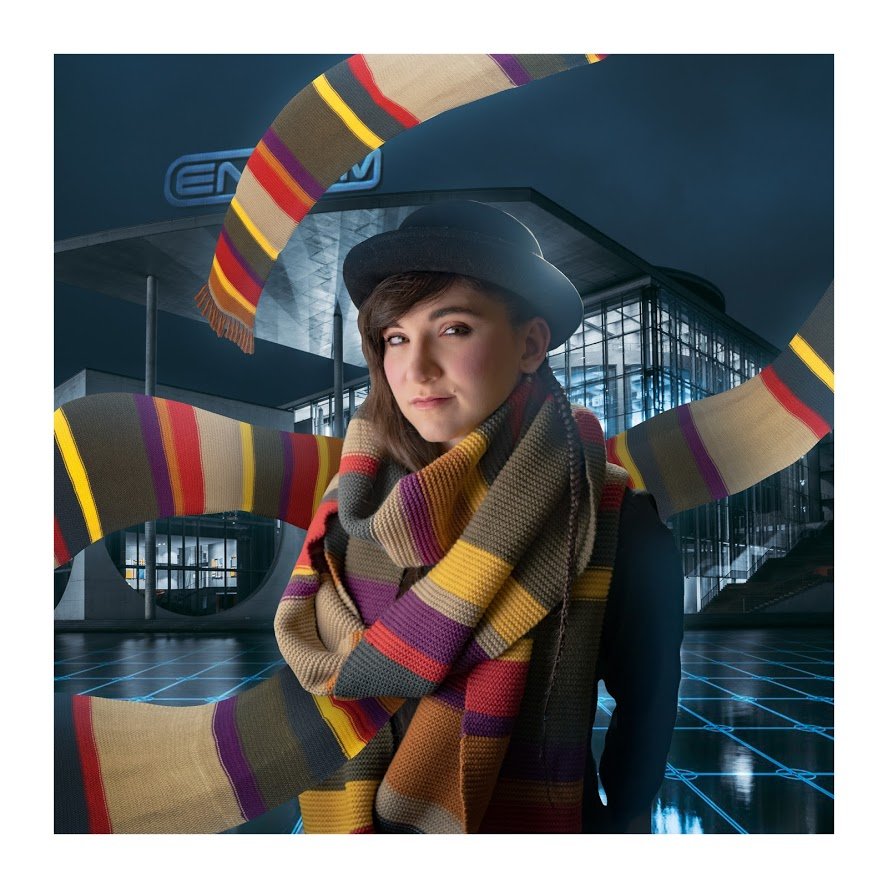
Acknowledging that there is no one way to produce the show – “However well you think you know Doctor Who, you can quite easily bump into other people who think completely the opposite” – Chris nevertheless recognises the dangers of ignoring John Lydgate’s maxim about trying to please all of the people all of the time. “I’d rather the episodes were more different – different writers, different directors. Imagine if each episode was like The Twilight Zone – just completely different every week, and the lynchpin is the Doctor. Or you could come up with a really tightly packaged season that was plotted episode by episode and told a bigger story. I think the problem with what they’ve done is that they’ve tried to go in the middle.”
Series 12 was big on revelations; its biggest, arguably, coming in the shape of a brand new Doctor – reduced, Chris notes with a sense of annoyance, to “a two-episode bit part”. How did he react to the sight of Jodie Whittaker digging up a TARDIS buried next to an abandoned lighthouse?
There is a brief, considered pause. “What annoyed me about the whole thing was that they milked the press for two weeks – ‘It’s really progressive, isn’t it?’ – but I don’t see her getting her own season. It felt like a missed opportunity. Obviously the mystery’s still out there – who is this lady? How is she connected to the other Doctors? But if you’re gonna give someone that exposure, at least give them a really good go at it, with a decent story. Maybe Big Finish will give her a 10-CD box set at some point.”
That’s probably a given, and with this likelihood established we go back to talking about Velocity. What is it that drives him to produce Doctor Who films?
“It’s a great sandbox for telling stories. I’ll be 40 next year, and I’d got to the point in my life where I wanted to start getting good at making drama. And you can do it as a hobby now. This doesn’t have to be a pipe dream – one day I’ll go to Hollywood. You ask: how do I make drama, and make it fun, and have a nice family life? There’s a lot going on the world that sucks, and it’s been nice to cheer people up for a few minutes.”
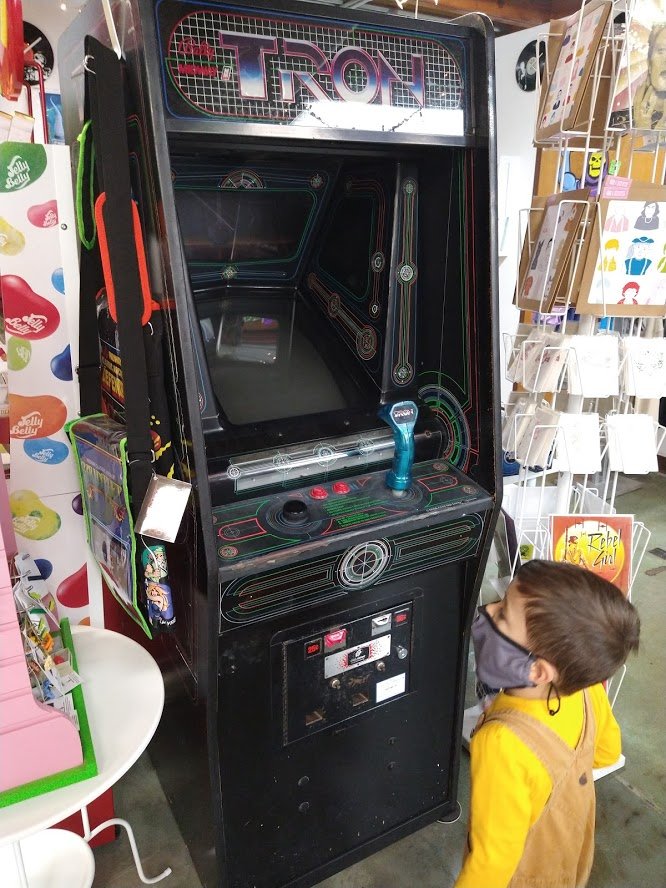
Cheering people up seems to be the way forward – both for Chris, and for Krystal, who has been doing doorstep comedy routines while the clubs are closed. She brings a sense of gravitas to the role, something Chris is keen to develop, at least within the confines of the 10-minute stories the team are producing. A future episode, for example, will feature an encounter with Juana Inés de la Cruz , notable Mexican writer and nun, and will mostly be a two-hander, with no green screen. It’s uncharted waters for Doctor Who, but for Chris it’s a chance for character progression, which is necessary when you’re doing short episodes; otherwise “you cram so much in, you almost leave the Doctor out”.
“This was a huge problem with Chibnall’s seasons, and I’ve found it tricky as well. The Doctor becomes the exposition, and isn’t a character. The Doctor can be anything, and ends up being nothing. One of the things I like about Eccleston is that you get a really strong feeling of who he was.”
Hence the need to bring back established characters – and one way Velocity bucks the trend is by subverting them. Hence this latest episode re-introduces Gloria (Jen Potcher), the mother of Keven the tech guru, who in a somewhat bizarre twist was eaten by the Vashta Nerada in the show’s Christmas episode, before being promptly resurrected as a cyborg. It’s certainly different, but for Chris it’s a way of tackling the ageism prevalent in the acting world, and a woman who “auditions for the lead parts, but doesn’t get them.”
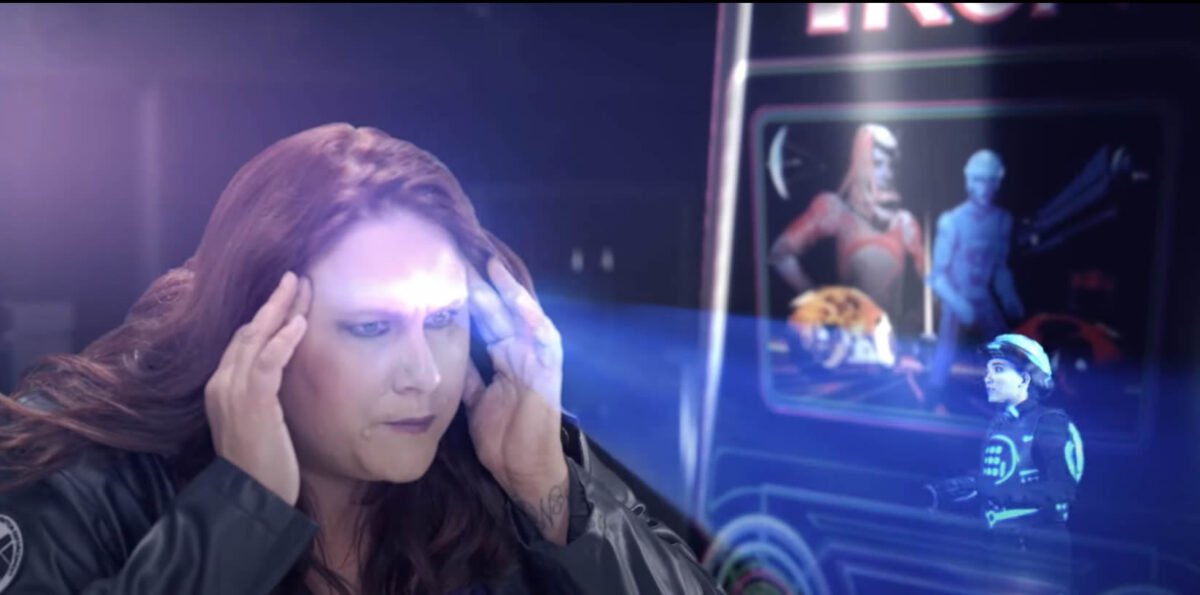
“Jen is a great friend of ours. She does a lot of work in Idaho – commercials and the like – but as far as local work is concerned, they cast a beautiful 20-year-old as the leading lady and then Jen gets to be the mum or the granny, a lot of these side roles. She was telling us about these auditions, and I thought ‘Oh no, I’ve cast you as a mum, a witch, and a whore!’
“So I thought ‘Let’s make her an action hero’. And I came up with this Terminator-style holographic. And just as a joke, in the Christmas episode, I put her in all these ridiculous situations and left it open.”
It is ridiculous, but it’s also important, because this is a problem that needs to be addressed, and if the industry won’t do it, the fans will. Now entering its fourth year of production, Velocity shows no signs of slowing down, largely because the team has never really allowed it to speed up – two or three episodes a year is enough to keep everyone busy, and they seem to like it that way. Still, there is a momentum, a sense of casual universe building, a loose continuity – Krystal and Chris at the helm, guiding their unconventional, bowler-hatted Doctor off to new adventures. With Gloria, I ask him?
Chris laughs. “If this were Big Finish, she’d get a box set.”
You can catch up with Velocity, completely free on YouTube now.
